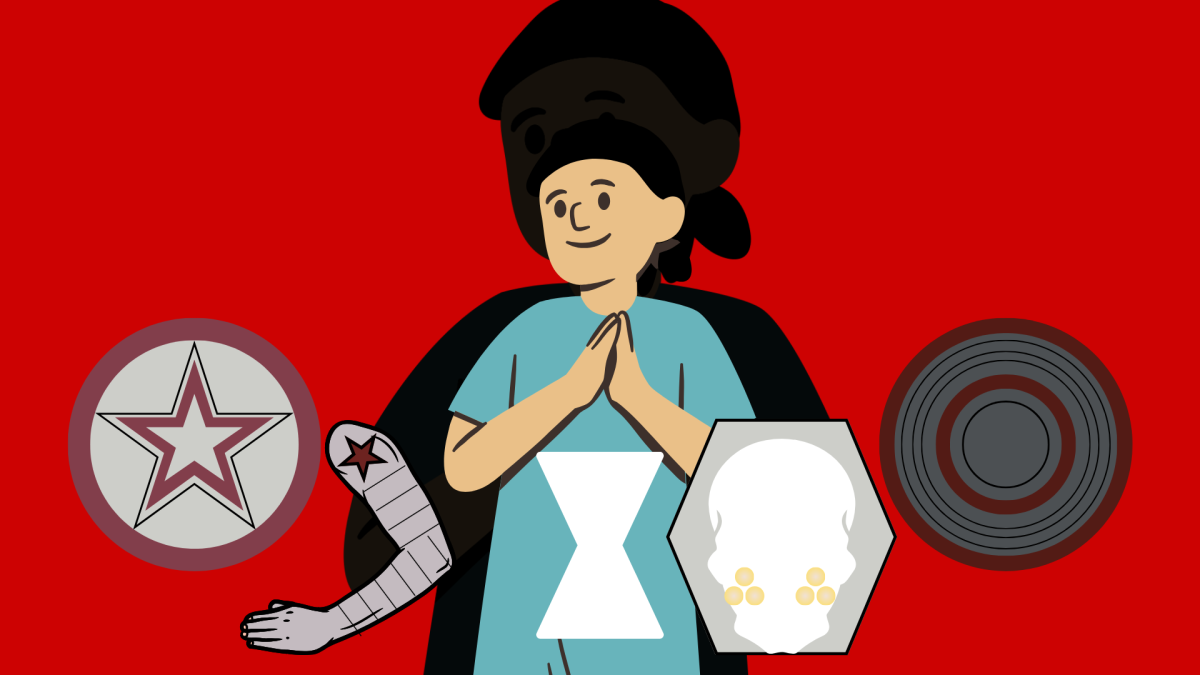
Reed: So, we watched that new Netflix movie, Damsel…
Griffin: …And it stank worse than a dragon’s breath.
Reed: Oh, for–it’s an amazing feminist update on classic fairy-tale tropes!
Griffin: It’s full of lousy dialogue and dinky details! Plus, the film’s not always as feminist as it’s made out to be!
Reed: What do–wait, sorry, sorry. Jeez, we keep forgetting the explanations!
Damsel is a fantasy movie centered around Princess Elodie, who comes from an unnamed kingdom in “the North.” With her homeland fallen on hard times, Elodie’s father Lord Bayford (Ray Winston) receives an offer from the splendid Kingdom of Aurea–he will receive a substantial amount of money in exchange for Elodie’s hand in marriage to the bashful Prince Henry (Nick Robinson). Elodie, with her father, sister Floria (Brooke Carter), and stepmother Lady Bayford (Angela Bassett), sail to Aurea for the nuptials. But where most fairy tales end with the prince and princess getting married, here, it’s just the start.
Griffin: The start of the terror, that is! Shortly after the wedding ceremony, Henry takes Elodie to a nearby mountain…and throws her into a cavern! In a horrifying twist, Elodie is just the latest in a long series of would-be brides for Henry–all of whom have been offered as sacrifices to the vengeful dragon lurking in the mountain. Now, Elodie must find a way out of the cave–or end up with her predecessors in the dragon’s chamber of corpses.
Reed: Which brings me to what makes the movie so amazing–Elodie is not your classic fairy-tale princess! From making witty remarks about her arranged marriage to fending off the dragon, Elodie asserts her own spirit on the story. Millie Bobby Brown does a perfect job of capturing Elodie’s range of emotions–from her initial hopelessness and despair, to her shock at each twists and turn of her tale, to her determination and vengefulness as she fights against the ending others want for her. Things are not done to Elodie–she does things.
Griffin: And what she does is speak oddly. Nor is she alone–Isabel Barr, freshman, with whom we saw the movie, pointed out other, more minor characters who confusingly mash together modern and medieval parlance. Elodie, for her part, needlessly narrates her escape plan to an empty room.
Reed: Maybe that stuff doesn’t work well, but it’s in the minority! Damsel turns fairy tales upside down in the best way. The prince is complicit in the villainy instead of being the hero; the seemingly-wicked stepmother sincerely cares for Elodie and Floria in the end, even trying to save the latter from harm. Meanwhile, the dragon has a truly sympathetic backstory instead of being a simple murderous beast. This movie makes fairy tales more complex, with some of the most inventive trope-busting I’ve ever seen.
Griffin: If only the trope-busting weren’t where the invention ends. I never get tired of pointing this out: numerous details in this film just don’t line up. For one thing, that not-so-wicked stepmother gets slashed in the stomach in one scene–and then the next time we see her, she’s riding a horse like nothing’s happened. For another, Elodie’s first clue to the dragon’s existence comes when a flock of birds goes shrieking out of a cavern she’s stumbled upon–and all of them are on fire. It’s certainly a cool visual, and a foreboding way to hint at what Elodie’s up against…but also, how did a flock of birds get inside a cave, deep within a mountain?
Reed: Well, other details are perfectly on point. The dragon, for example, is heard long before it is seen. In the beginning, as a king leads a group of knights to kill the dragon, it gets the drop on them, slaughtering all of the knights and forcing the horrified king to kneel helplessly before it. Even though we haven’t yet seen the beast, we’re already sure that we don’t want to.
Griffin: Well, there’s one particular bit that definitely fouls the movie up. As she gears up for a showdown with the dragon, Elodie cuts her hair short with her sword. Mabel Johnston, freshman, whom we watched the movie with, explained how this might be problematic.
“I think it’s weird how, in movies where they try to make women more powerful, they always have to take away their femininity and make them more masculine, like with the cutting-of-the-hair trope,” Johnston said. “It’s like, why can’t femininity be perceived as powerful as well as masculinity?”
Reed: Hmm…I had thought about that. But even so, the movie still has a great deal of merit! The score, for example, is outstanding. Whether the music is gentle and reflective as Elodie faces difficult truths, or more intense as she faces down the dragon, the right tune plays for almost every occasion. And the film is perfectly paced–the plot moves forward steadily, always laying the foundation for what’s to come.
Griffin: Care to offer a moral for this “not-a-fairytale,” Reed?
Reed: Yes! The moral of this story: Damsel burns bright as a dragon’s fire, even if it is a little singed around the edges.









